Springfield City Council could ban VLTs on Monday. Could eSports and arcades be impacted?
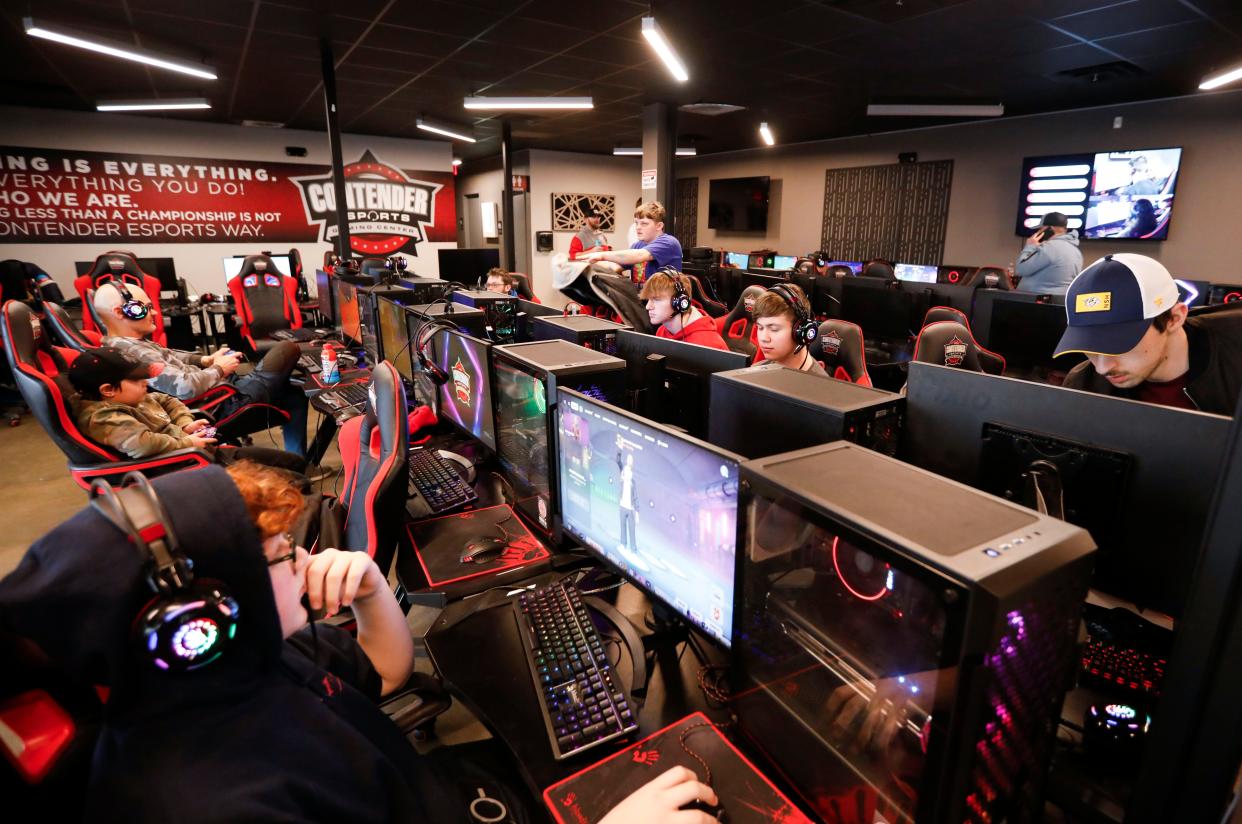
Monday's Springfield City Council meeting may be a deciding one for video lottery terminals, or VLTs, often found in gas stations, convenience stores and bars, as council members consider a ban on electronic devices that offer any type of monetary prize. But business owners worry that the ordinance could also negatively affect practices beyond VLTs.
The ordinance would amend city code to add a section on monetary prizes. It would prohibit the operation of "any entertainment device that offers a monetary prize to any person regardless of the frequency with which a monetary prize is conferred or the odds of any individual user realizing a monetary prize."
The ordinance also includes minimum penalties for breaking these regulations. Each device would constitute a separate offense, and with each offense the punishment becomes harsher. A first offense would result in a minimum $500 fine, second with a minimum $1,000 fine and a third with $1,000 fine and 30 days in jail.
A loophole in state regulations
Known as "no chance" games, the entertainment devices attempt to bypass state statute that defines illegal gambling as games of chance by allowing the player to preview the outcome of a given play. While the state legislators have discussed regulations around VLTs, the issue has been at a standstill as these regulations have been closely tied to legalizing sports betting.
Though the council's legislative priorities include support for a state-wide classification of VLTs as illegal, the council took matters into their own hands with the ordinance. Talk of regulating the devices have been ongoing for years. Because the ordinance focuses on the reward aspect and not the gameplay or format of the game, it does not step on the toes of the state's authority on the matter or statewide gambling laws.
Critics of the terminals argue that despite these devices not being called a form of gambling, gambling still takes place. As the player sees the outcome of the initial play, they do not see what the subsequent play will result in, leading to a chain reaction of continuous play and betting.
The city's chief litigator, Chris Hoeman, drafted the ordinance and noted the city currently requires a license for coin-operated machines. According to city code, amusement machines, such as pinball machines or record players, are licensed for $5 per machine while other machines not for amusement, like vending machines, are licensed at lower rates.
"That's based on the function of the machine, and the ordinance that council is considering relates to prize format," he said. "So you might have overlap where you might have a coin-operated machine that also gives a monetary prize, but in terms of what the ordinance is dealing with, versus what's been licensed in the past, they're kind of two separate things."
More: Another year, another Super Bowl for the Chiefs and still no sports betting in Missouri
Broadness of ordinance a concern for esports, arcades
Brett Payne, owner of the Contender eSports franchise and Springfield's local location, said he heard about the ordinance less than two weeks ago. He wants to see VLTs regulated but is concerned about the broad language the ordinance currently contains.
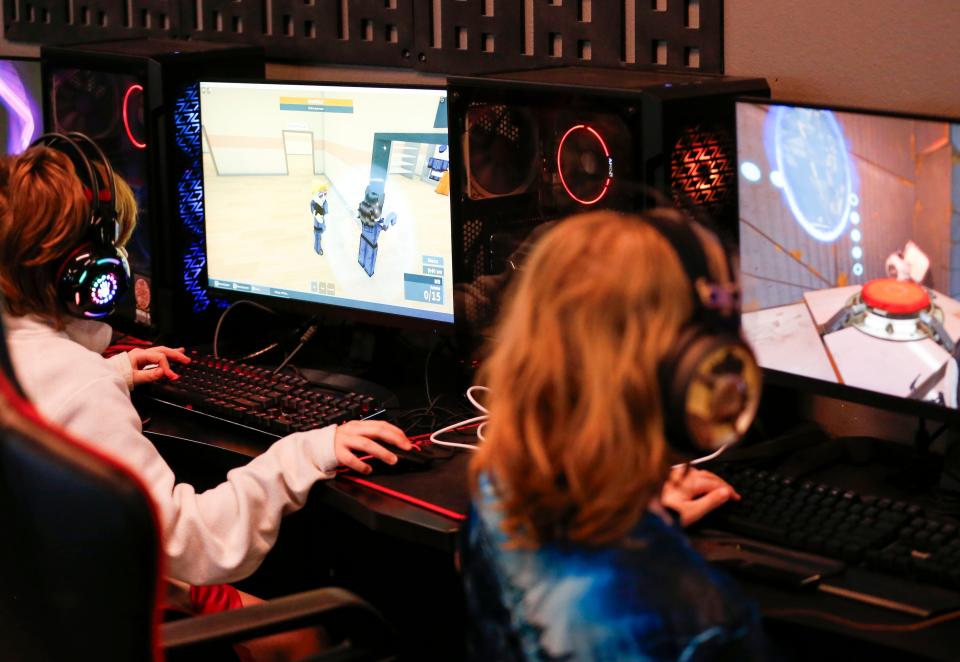
His business is a place where people gather to play video games. While arcade-style tokens that can be exchanged for prizes were introduced at Contender eSports less than two years ago, cash prizes have always played a big role in the industry. For example, every Monday night video game enthusiasts play Smash Brothers where they cash in and at the end divvy up the money depending on who wins. Similarly, last year Contender eSports held the largest amateur Call of Duty tournament in the country — one that awards winners thousands of dollars.
"That was the only reward system that was acceptable by the eSports customer base," Payne said of cash prizes. "No one would ever go to events or tournaments that were not for cash."
He said he was disappointed that prior to the ordinance being introduced, businesses like his were not a part of the drafting process and conversation. Upon finding out more about the ordinance, he invited council members to visit him and his business on Saturday. Councilman Brandon Jenson was the only one to attend the visit.
More: 'We need your help': Community reacts to city's proposal to ban 'no-chance' games
Payne notes that despite the current council not wanting to affect operations like his, the generality of the current draft allows future leaders to use it against legitimate businesses.
"I understand what they're trying to do. I mean, I live in the city, I see it, and I think what they're doing is great. I'm in favor of it," Payne said. "It could have unintended consequences where even though it's not the intention of the city to put us in that kind of situation ... if it gets passed, we would essentially be operating in a very gray area. ... No business owner wants to operate like that."
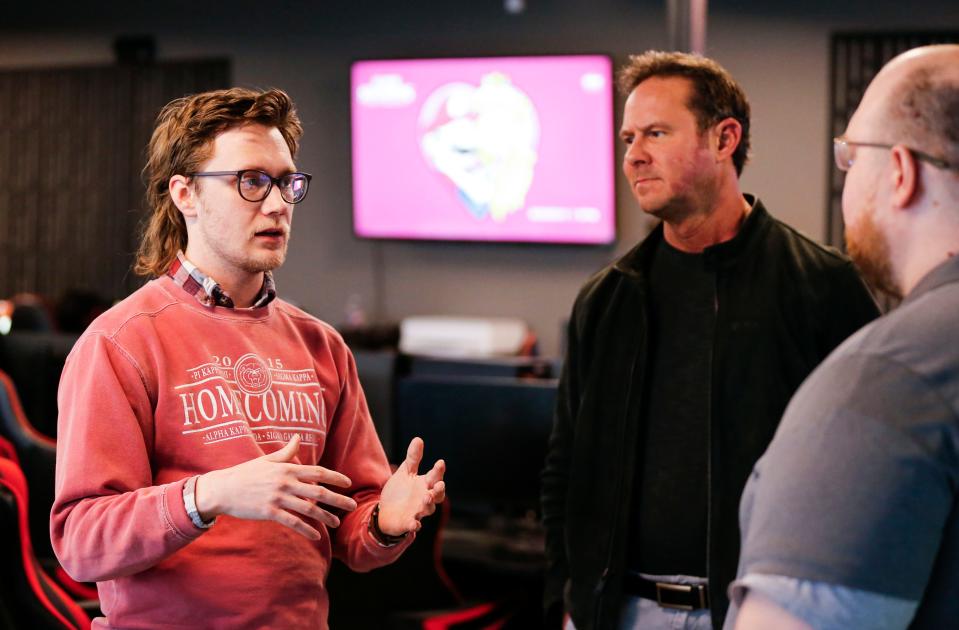
But Hoeman said he doubts Payne's worries are founded.
"Their tournaments are kind of separated from the devices themselves. In the eSports context, you can't go in, play a machine and win money out of the machine," he said. "They might organize competitive tournaments that have prizes, but that is separate from the machines themselves ... The language of the ordinance, what it prohibits is devices that confer monetary prizes on players."
On Friday, Buddy Lahl, CEO of Missouri Restaurant Association, sent council a letter on behalf of Springfield restaurant, bars and taverns opposed to the bill, which also cited the broadness of the language. In it he notes that restaurant margins are among the thinnest and the broad strokes of the ordinance could impact revenue that is brought in by "novelty games enjoyed by children and other patrons in family establishments."
In addition, Payne mentioned local arcade owners also shared fears. The ordinance focuses on banning any prize in the form of cash or anything that is easily redeemable for cash, such as gift cards. Because of this, arcades would not be impacted as they reward items and merchandise. Hoeman said the only area in which arcades could be impacted would be when they offer gift cards as prizes.
A difference in location and operation
Business owners who do fall into the category of VLT operators the bill is seeking to regulate also hope council considers a more narrowed approach.
The average person in Springfield is most likely to see a VLT in a convenience store or gas station. Those stopping in for a snack or drink may notice a wall lined with the large machines with bright screens offering various games.
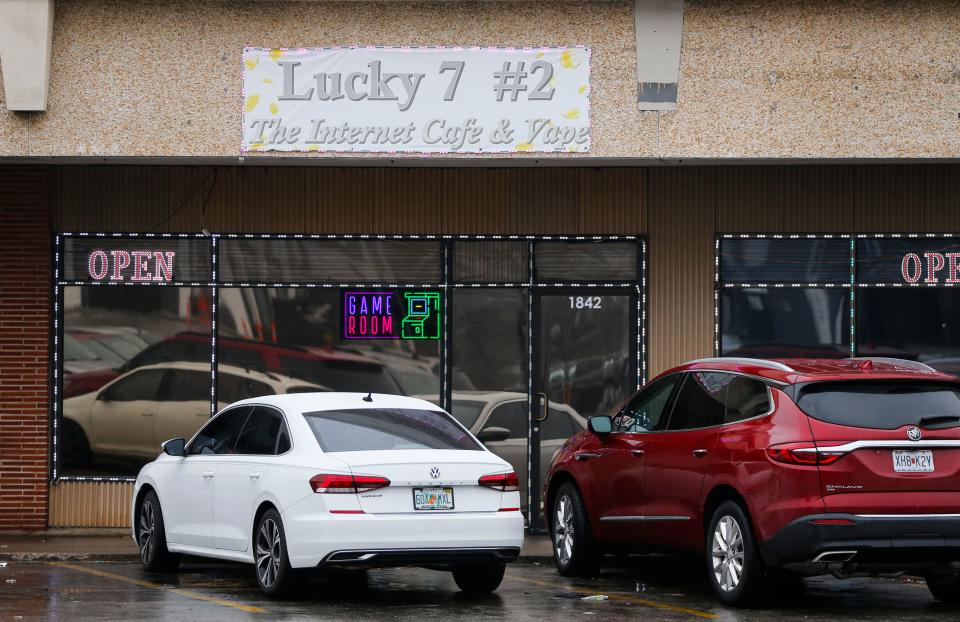
But the game machines are also the backbone of several businesses around Springfield — adult game rooms that are often labeled as "internet cafes." When the ordinance was initially read, business owners from the Plaza shopping center explicitly noted the increased problems and crime the businesses,which often operate 24 hours a day, have brought to the area.
Rapid Robert's CEO Todd Wilson said his convenience stores average about three machines per store and have operated the machines in Springfield for about five years. Lumping businesses like his with those of game rooms he said is like comparing apples with oranges.
"It's just frustrating to see a piece of our business get banned over illegal activity that should not be occurring in the first place," he said.
Wilson said the machines are an additional source of revenue that have helped his business reinvest in the community. While the ban would not shut their doors, it would hurt operations, he said. The additional income has contributed to the business's ability to provide raises and bonuses to employees.
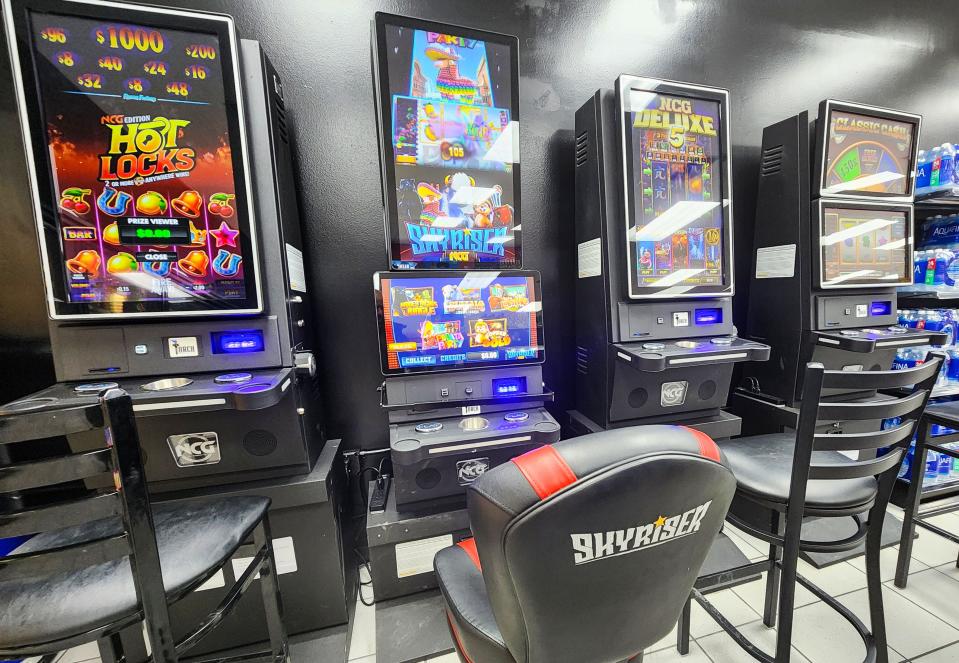
During the public hearing for the ordinance, council members heard comment from multiple residents who expressed their concerns with operations like Wilson's. Neighborhood representatives noted the detrimental effects the machines bring to the area and those working with addicts warned of how the devices prey on vulnerable people when installed in places that they may frequent.
"There're a lot of things that I sell that socially, maybe some people don't agree with and that are addictive," Wilson said, including tobacco, alcohol and lottery tickets. "I can't tell people what to spend their money on. I can provide goods and services, and people can choose to purchase that or not. I don't know where does the moral line get drawn? ... Do we start banning everything that's addictive or everything that people don't agree with?"
Wilson contacted council members with his concerns and said he would be supportive of other, more narrow regulations. In his email to council he suggested a 21-year age requirement, a cap on the number of VLTs per business, limiting hours of operations for the games and raising the city's licensing fee for coin-operated machines from $5 to $100. Overall though, Wilson said he wants matters related to VLTs and any regulations on legality to be left up to the state.
During the last council meeting, council members remained skeptical of the potential benefits of the machines within convenience stores and gas stations. The council meeting where the bill will be voted on will take place on Monday at 6:30 p.m. at the Springfield Regional Police & Fire Training Center at 2620 W. Battlefield. The meeting will also be livestreamed on the city's Facebook page and www.cityview.springfieldmo.gov/livestream/.
Marta Mieze covers local government at the News-Leader. Contact her with tips at mmieze@news-leader.com.
This article originally appeared on Springfield News-Leader: Loophole machine ban worries unrelated Springfield businesses

